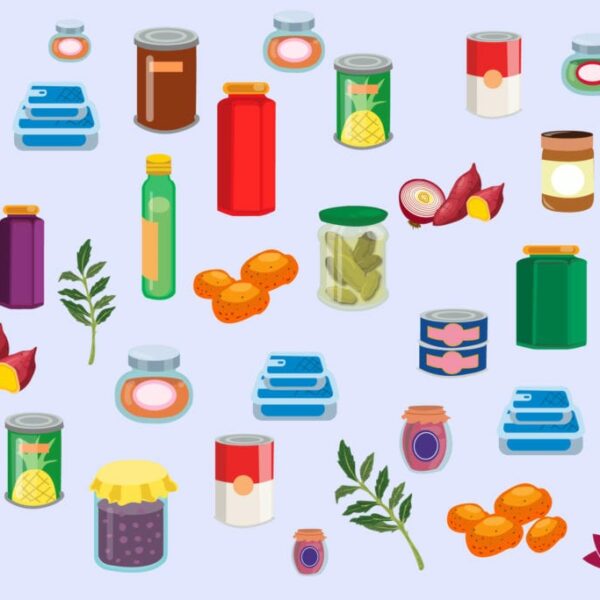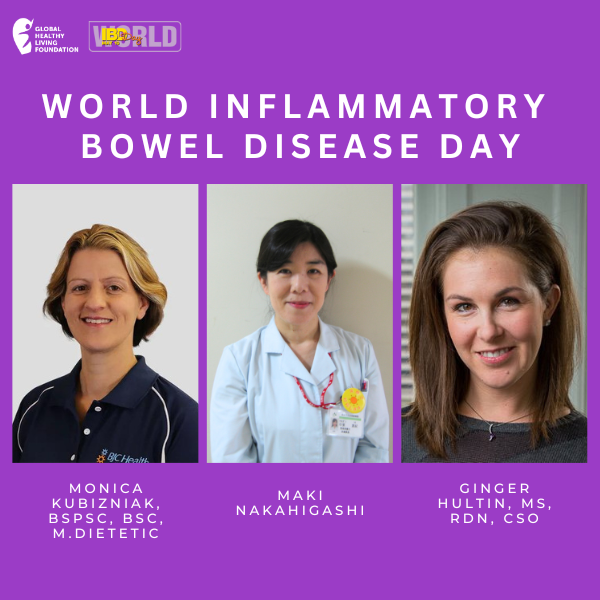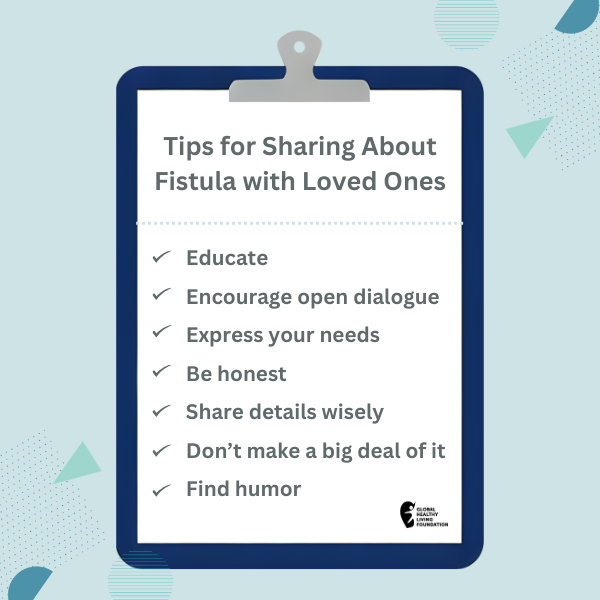In honor of World IBD Day, dietitians from three different continents share tips on managing diet and inflammatory bowel disease (IBD).
WHAT IS THE SPECIFIC CARBOHYDRATE DIET AND DOES IT REALLY WORK?
WHAT IS THE SPECIFIC CARBOHYDRATE DIET AND DOES IT REALLY WORK?
December 3, 2020
Anne M. Sydor

The specific carbohydrate diet (SCD), is a very strict diet that removes all grains and certain sugars from what a person eats. The diet was developed in the 1950s by Sidney Valentine Haas, MD who thought it might help with difficult-to-treat digestive (gastrointestinal) conditions, including celiac disease, inflammatory bowel disease (IBD), and irritable bowel syndrome (IBS).
The SCD became more well known in the 1990s when Elaine Gottschall, PhD published Breaking the Vicious Cycle: Intestinal Health Through Diet, which is her story of treating her daughter’s ulcerative colitis.
Today, evidence that the SCD really works is limited. However, as long as people make sure to get enough nutrients when they follow this diet, it is not harmful. Some medical centers have even started providing support for people with these conditions who want to follow the diet—understanding that many want to try everything they can to improve these often-debilitating conditions.
Why Limit Grains and Sugars?
Dr. Haas, who originated the diet, thought certain carbohydrates, lactose and sucrose, were used as fuel by an overly high number of bacteria and yeast in the intestines. It is normal and healthy to have those micro-organisms, considered the microbiome, in our gut. Dr. Haas believed that an imbalance—too many of one or more types of bacteria or yeast—caused damage to the gut, which then increased the population of the problematic organisms. More organisms would then lead to more damage, creating a cycle of yeast and bacterial growth and damage to the gut.
One of Dr. Haas’ patients in the 1960s was the daughter of Elaine Gottschall. After the diet worked for her daughter, Elaine went back to school and earned several scientific degrees including a doctorate in biochemistry. She wrote Breaking the Vicious Cycle: Intestinal Health Through Diet, which is how many people learned about the diet.
What Is the Evidence Today?
All of Dr. Haas’ work was done by observing what happened to the children he treated when they did or did not eat certain foods. He and the parents knew what dietary treatment each child received and so it is possible that what they saw was what they hoped to see and not a real effect. That is why it is important to do what are called blinded randomized controlled studies, but these are very difficult to do for dietary treatments because someone participating in a diet study can see what they eat. Also, it is not ethical for people to be made to stop other treatments to test another, so many people using the SCD are also taking medication for their condition, making it hard to know if the diet is having a true effect.
The studies that have been done in recent years have been small (7 to 50 participants each) and were done after people had already been using the diet. In those 6 studies, 75% of children and adults with inflammatory bowel disease (Crohn’s disease or ulcerative colitis) who used the SCD did have improvement of symptoms and decreases in inflammation. However, in all but 1 of these studies, the research was done after the fact, which reduces the quality of the evidence for the diet. There is not enough evidence to say that the diet works or doesn’t work at this time. Based on what we know now, the most accurate statement is that the SCD may be helpful for some people with IBD.
What Is Included in the Diet?
The SCD is more than limiting carbs or being on a low-carb diet. There are very few foods that can be eaten at the beginning of the diet and some foods should be eaten only when certain symptoms are not present. As a person has fewer symptoms, they may be able to add back some foods. The foods that are acceptable on the diet include the following.
- Nonstarchy fresh and frozen vegetables
- Fresh, raw, or dried fruits
- Fresh or frozen meats, poultry, fish, and eggs
- Natural cheeses (ricotta, mozzarella, cottage cheese, cream cheese, feta, homemade yogurt, and dry curd cottage cheese)
- Apple cider
- Fresh squeezed orange juice
- Nuts (but not seeds)
- Honey
Starchy vegetables, including potatoes, yams, parsnips, chickpeas, and beans are not allowed. No lunchmeat or processed meat can be eaten. Condiments like ketchup or mustard are not allowed, nor is chocolate or ice cream. No bread or grains of any kind are included in the SCD.
Consult Your Health Care Team
It might feel great for a person with IBD or IBS to feel that they can “cure themselves” by controlling what they eat but giving up so many foods can be very challenging especially because food labels are not always accurate. If a person is able to follow the SCD, there is also a risk of malnutrition and unwanted weight loss. Not getting enough nutrients can cause serious nerve, muscle, and other health problems that can be painful or life-threatening.
For anyone considering the SCD it is a good idea to consult with a nutritionist about how to prevent malnutrition and other problems while on the diet. If you’re considering this diet, talk with your health care provider first. Self-treating your condition or making changes to your treatment without shared decision making with your team may have serious consequences. Your doctor may be receptive to the idea of the diet as long as you consult with a nutritionist and continue to have your health monitored carefully.
SUBSCRIBE TO GHLF
RELATED POST AND PAGES
_
Was this article helpful?
YesNo




